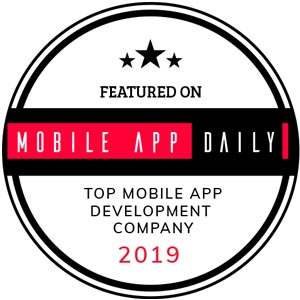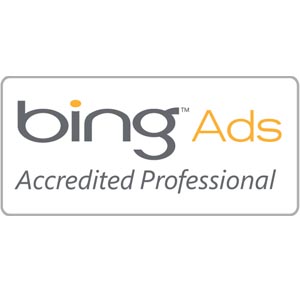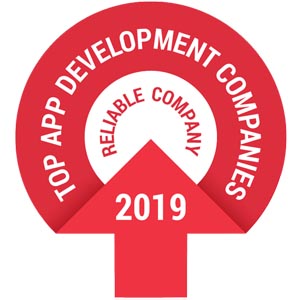Local search engine optimization (SEO) is always going to be relevant! Local SEO in 2023 is something that businesses can really optimize on and use to pull in new customers. In 2018, Google reported that “near me” searches had seen a 900%+ growth in mobile searches alone! This shows us that local SEO in 2023 is going to be just as important as it was in 2018, in mobile searches and across other devices.
When it comes to a local SEO checklist for 2023, that are some unique elements that we all want to keep in mind when it comes to SEO. Here at Split Reef, we have compiled this list of ranking elements for local SEO in 2023 to consider when you are looking to redo your SEO. SEO company in Jacksonville Florida
Ranking Elements for Local SEO in 2023
When it comes to local SEO in 2023, keep in mind that local SEO is all about optimizing local businesses that contain specific geographic qualifiers that can range from zip code, city, street, and other local specifics.
This local SEO checklist for 2023 pulls together some specific ranking elements for local SEO to help give you a better understanding of how to make the most of 2023 for your business. As search engines continue to evolve, so do the ranking elements for local SEO. In 2023, there are several factors that will play a crucial role in determining a business’s local search ranking.
Here are some of the ranking elements that businesses should focus on for local SEO in 2023:
Identify Target Keywords
On a list of ranking elements for local SEO in 2023, relevant keywords may seem a little on the nose. But the most basic part of local SEO for 2023 can often be overlooked.
Keywords are the foundation of SEO. You need to find target keywords that are relevant to your business and its services. To identify target keywords, gather as much information on the current keyword trends in your industry and consider your competitor’s keyword use. This can be done by conducting SEO keyword research or using keyword tools like Moz or Semrush. Once you have identified your target keywords, you can begin to use them in your website content, tags, titles, and descriptions.
When you read over the copy on any part of your website, from your about us page to your blog content, are you using or seeing keywords that are relevant to your local area? Incorporating relevant keywords is a simple way to ensure that your site is hitting on local rankings. Strategically using relevant keywords can assist in upping your local SEO in 2023!
Identify Ranking Intent
Ranking intent is the reason why a user searches for a keyword. When creating content, it’s important to align it with the user’s search intent. This can be done by understanding their search queries, identifying their challenges, and offering solutions. For instance, local buyers search for product pricing, reviews, and location. As such, your website should show relevant pricing information, location, and reviews.
Optimize Your Google My Business (GMB) Listing & Presence Across Other Business Platforms
Google My Business is crucial to local SEO. It’s a free tool that lists your business in Google Maps and local search results. Having a complete and accurate Google My Business profile boosts your local SEO ranking. Ensure that your business information such as name, phone number, and address is accurate. Additionally, have a complete description of your products and services and high-quality photos of your business.
Optimizing your Google My Business (GMB) listing will continue to be a critical factor in local search rankings in 2023. Ensure that your GMB profile is complete, accurate, and up-to-date with your business information, including your address, phone number, hours of operation, and website URL. Also, regularly post updates and photos to your GMB listing to keep it fresh and engaging.
Claim Local Business Listings
Claiming your local business listing on Google My Business is an extremely crucial step to your local SEO checklist for 2023. As a free tool, your Google business listing allows you to easily set up and manage your business information.
Google My Business is utilized by search engines for local SEO in 2023 in terms of location, contact information that you list, and proximity to the user who has performed a search.
By setting up and claiming your Google business listing, you can implement effective local SEO in 2023 to ensure that your business is being seen by potential customers in your area! Columbus SEO company.
Utilize Structured Data Markup for Local SEO
Structured data markup is a key component in local SEO because it informs search engines about the essential elements of a business that customers find useful. Some of the key local structured data markup elements include product pricing, ratings, and reviews. Structured data markup helps search engines to understand the context of your business, and this improves search visibility.
Create Location-Based Landing Pages
Location-based landing pages are crucial to local SEO. Location-based landing pages provide customers with relevant information about your products and services based on their proximity to your business’s physical location. It is important to make sure that the information on the location-based landing pages, such as your location and business hours, is consistent and accurate across all online platforms.
Prioritize Local Link Building & Citations
Local link building and citations are critical for local businesses because they help businesses to establish credibility, improve their search engine ranking, and attract customers to their websites. In fact, studies show that businesses that have more links and citations tend to rank higher in search engine results pages. In addition, local link building, which involves linking with other local businesses, is a great way to build relationships with other companies in the same industry. This can lead to referrals, partnerships, and other mutually beneficial opportunities.
Leverage Reviews & User-Generated Content (UGC)
Reviews and UGC are essential for several reasons. Firstly, they provide social proof. When customers see positive reviews from other people who have already used your product or service, they are more likely to trust your brand and consider making a purchase. Secondly, reviews and UGC can improve your local SEO. Search engines such as Google take into account the content and quality of user-generated reviews when determining search engine rankings. The more positive reviews you have, the higher you will appear in search results. Finally, reviews and UGC provide invaluable feedback that can help you improve your product or service.
Reviews and ratings will remain a vital factor in local search rankings in 2023. Encourage your customers to leave reviews on your GMB listing and other relevant review sites. Respond to all reviews, positive or negative, to show that you value customer feedback and engagement.
Location and Proximity
Location and proximity will continue to be significant factors in local search rankings in 2023. Ensure that your business’s physical location is accurate and consistent across all online directories and review sites. Also, consider targeting location-specific keywords in your content and meta tags.
Mobile Optimization
Mobile optimization will be crucial for local SEO in 2023, as more and more users rely on their mobile devices for local searches. Ensure that your website is mobile-friendly and optimized for local search queries. Also, consider using Google’s Accelerated Mobile Pages (AMP) to improve your website’s load time on mobile devices.
Social Media Presence
A strong social media presence can also help improve your local search rankings in 2023. Consider creating profiles on relevant social media platforms and regularly posting engaging content to keep your audience engaged and informed.
Voice Search SEO
When you use Google to search for something in your local area, how often do you find yourself using voice search? We can guess often! Local SEO in 2023 can be shifted towards the idea that your potential customers are making use of their mobile devices in a few ways.
Consider what kinds of questions or particular searches your customers might use. For example, are you a car dealership that specializes in used, antique vehicles?
Some queries that local customers might search could include:
- Where is an antique car dealer in [city name]?
- Used antique car dealer in [city name]
- [City name] used car dealer for [specific antique vehicle]
These are just a few examples of the way that potential customers might word their voice searches. Taking these into account for your business and your ranking elements for local SEO in 2023 can make a difference.
On-Page Signals
Different on-page factors that can be worked into the makeup of your site can also greatly assist in your local SEO for 2023. In this local SEO checklist for 2023, here are a few different things to consider that can affect your website’s local SEO ranking.
- Ensure that the important details are on your site. Name, address, phone number, and other ways of contact are often used by Google to determine proximity details for local searches.
- Is your site mobile-friendly? With an easily accessible website, your site will rank higher in mobile searches that are tied to location.
Local SEO Checklist for 2023 Help
Now that we have taken a look at some of the important ranking elements for local SEO in 2023, consider working with Split Reef if you want to hit the ground running this year in relation to your local SEO checklist. As a professional SEO company, our experienced team is more than ready to get started on your SEO optimization.
In conclusion, local SEO will continue to evolve in 2023, but by focusing on these ranking elements, businesses can improve their local search visibility and attract more local customers. Remember to stay up-to-date with the latest SEO trends and best practices, and consistently work to optimize your online presence for local search queries.

Split Reef is a modern, results-driven digital organization always ready to support clients in their search for digital supremacy. With Split Reef, your budget isn’t going to hold you back from partnering with us to make your project successful. Our offices are located in Columbus, Ohio and Jacksonville, Florida.











